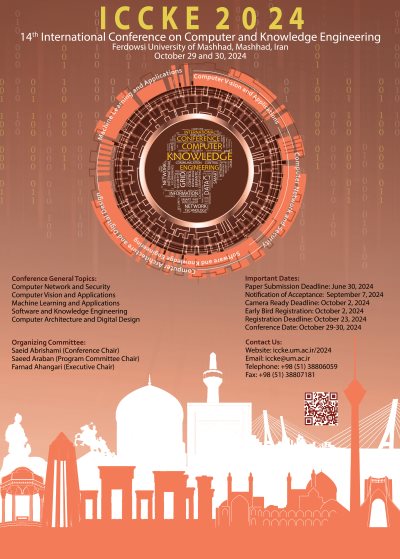0% Complete

Authors :
Keywords :
Abstract :
List of archived papers
Mobin Vaziri - Mohammad Mehdi Rahimifar - Hadi Jahanirad
Benyamin Mirab Golkhatmi - Mohammad Hossein Moattar
Mostafa Ghorbani - Azadeh Mansouri
Arezou Safdari - Pedram Salehpour
Masood Ghasemi - Mahmood Fathy - Mohammad Shahverdy
Dorna Nourbakhsh Sabet - Mohammad Reza Zarifi - Javad Khoramdel - Yasamin Borhani - Esmaeil Najafi
Negin Shafinezhad - Hamidreza Abrishami - Saeid Abrishami
Mohamad Hossein Maghsoodi - Mohamad Khansari
Alireza Jahandoost - Mahboobeh Houshmand - Seyyed Abed Hosseini




